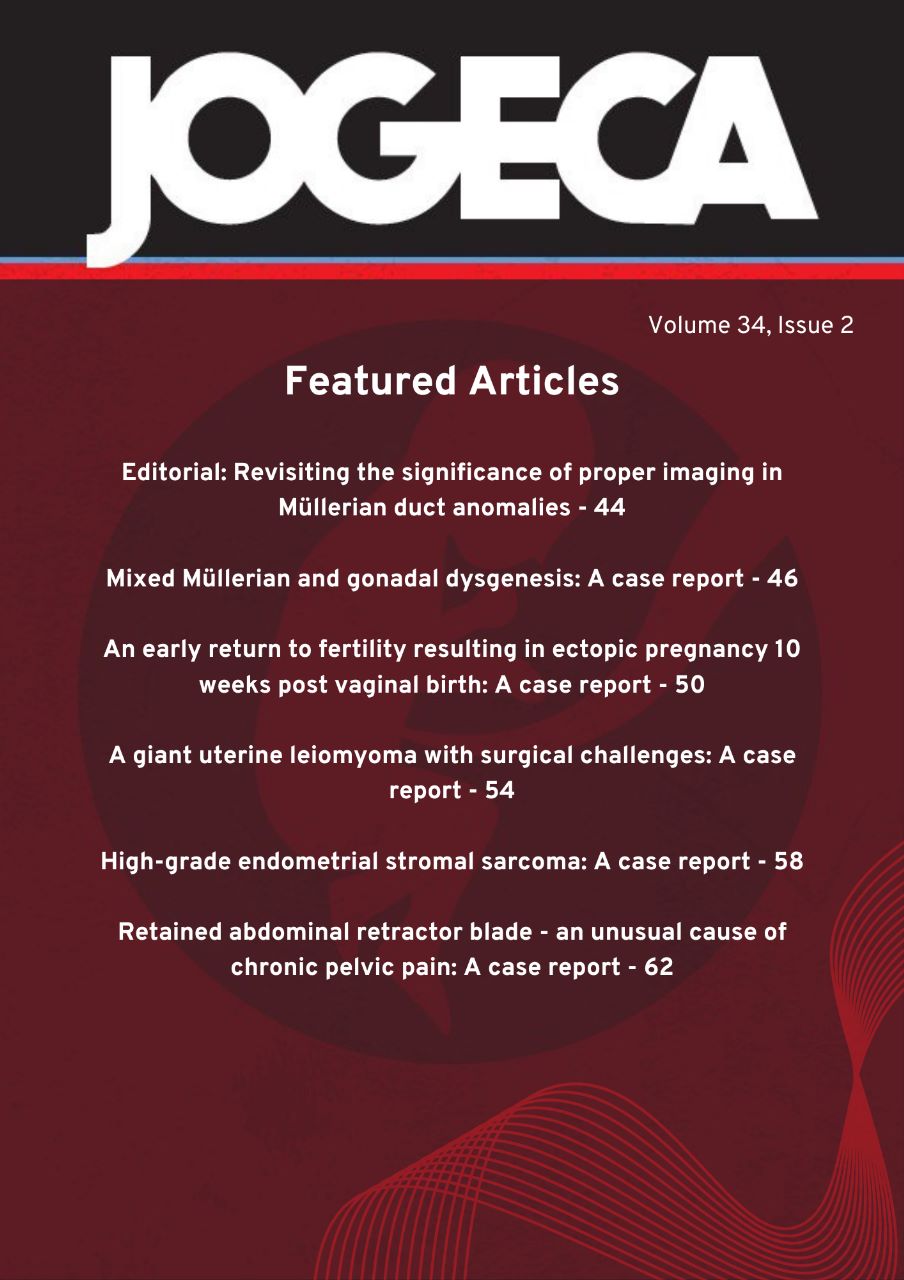ASSOCIATION BETWEEN SERUM FOLATE LEVELS AND EARLY PREGNANCY LOSS AT KNH. A CASE CONTROL STUDY
DOI:
https://doi.org/10.59692/jogeca.v32i1.201Keywords:
serum folate, early pregnancy lossAbstract
Background: The World Health Organization (WHO) defines Early Pregnancy Loss (EPL) as termination of pregnancy before 20 weeks gestation or with a fetal weight of below 500grams. EPL occurs in 10% of all clinically recognized pregnancies, 80% of which occurs in the first trimester. About 50% of EPLs are due to chromosomal abnormalities. Other factors implicated include: immunologic; anatomic; endocrine; hematologic and micronutrient factors, including folic acid deficiency. This study aimed at assessing the association between serum folic acid levels and EPL among patients attending Ante natal services at the Kenyatta National Hospital (KNH).
Methodology: This was a case control study where cases were women aged 18 to 40 years presenting with EPL (below 16 weeks of gestation) while the controls were women with viable pregnancy matched for gestation age. Consecutive sampling was used to identify 82 women with EPL and 95 women with normal pregnancy.2mls of blood was collected from the ante cubital fossa for assessment of folic acid levels.
Results: There was a statistically significant difference in the median folic acid level between the EPL group and the normal pregnancy group (17.3ng/ml and 19.7ng/ml respectively) (p, 0.022). Using the KNH normal reference range for serum folic acid levels in pregnancy of 12.9 – 20ng/ml, there was no significant association between folate levels and EPL. Two-thirds in the EPL group (69.5%) and majority (89.5%) of the pregnant group were married. Pregnancy loss was significantly associated with marital status (p, 0.001), education level (p, 0.042), number of previous miscarriages (p, 0.003) and antenatal clinic attendance (p,0.016).
Conclusion and recommendations: From our study we concluded that normal serum folate levels do not seem to confer protection against EPL in this population. Supplementation is essential to high risk population i.e. those with low education level, single status and those not attending antenatal clinics.It is recommended that WHO levels for normal serum folic acid be used as the normal and then conduct further studies using this standard.
Downloads
Published
Versions
- 2024-07-29 (2)
- 2020-03-31 (1)
How to Cite
Issue
Section
Categories
License
Copyright (c) 2020 The Authors.

This work is licensed under a Creative Commons Attribution 4.0 International License.




